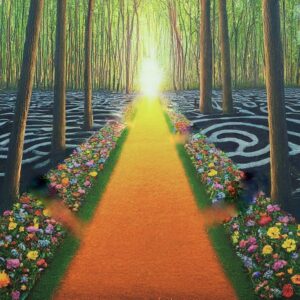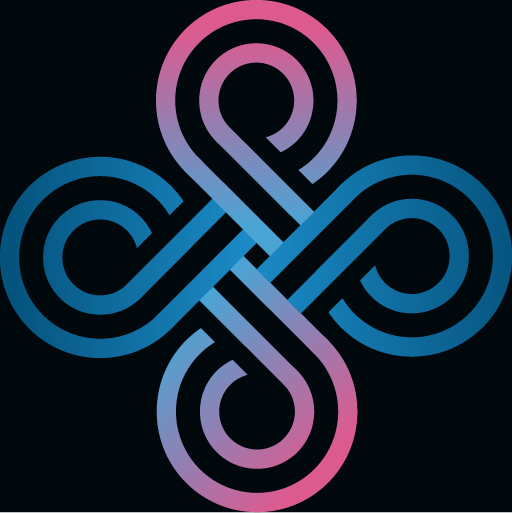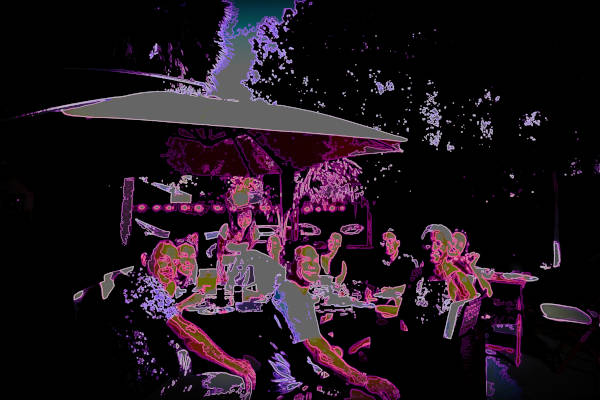The Invited Philosophers
Nadine, Paula, Pao, Tamara, Alain, Ianca, Natalia, Rene, Moira
This was a group event, a Philosophical Potluck Tertulia, a dinner with great friends who brought food, drinks, deep thoughts and laughter to share.
Menu
- Appetizers: Various salami, ham, cheese platters, olive platter, spinach dip and crackers, petite quiches, Greek spinach pie.
- Main course: Grilled chicken Shawarma, Argentinian chorizo, Greek lemon rice, home-made tzatziki, Mediterranean orzo salad, and green salad.
- Desserts: French macaroons, filled churros, quinoa bites, fruit tart, Aubi & Ramsa liquor ice cream.
- Drinks: Red wines (Meomi, Maison Bourbolot, others), Korbel rosé champagne, Kyla hard kombucha
The Existential Questions
Between appetizer and main course we all shared our questions. We discovered there were similar questions asked in different ways and we narrowed them down to 5. These are the questions:
- What is love? How do you keep expanding your love?
- What is reality? Is life a dream?
- What is happiness?
- Do we surrender to some destiny or take control of our life?
- Is technology dehumanizing us?
The Tertulia was brimming with thought-provoking questions. While we couldn’t answer them all, we used our group chat, post-event, for further exploration.
The Answers
What is love?
We only briefly touched on this topic. And we also sought to clarify: Do we mean “romantic” love? “Passionate” love? Or a greater love? I presented my definition of love which we discussed with Carol in the 15th diner and that I borrowed from Harvard Psychiatrist M. Scott Peck: “Real love is sustained from a disciplined effort to escape one’s ego into new, unchartered territories, into the road less travelled, and for the benefit of others.” We discussed something similar with Anna and Ben in the 18th Dinner were Anna defined love as : “Love is a commitment to do what is best for others,” but then Ben argued that sometimes we do not know what is best for others. Good point.
Alain asked: How do you keep expanding our love? And I believe he referred to Ram Dass saying:
“Quiet your mind, open your heart. When you quiet the mind, you meditate. When you open your heart, you start loving that which you can love and just keep expanding it. You love a tree, you love a river, you love a leaf, you love a flower, you love a cat, you love a human. Go deeper and deeper into that love. Do you love that which is the source of the light beyond all of it?”
What Ram Dass meant is, that you can start with loving another human or your cat, and then you expand that to love all humans, the planet earth, the universe and you end at the source of all that exists or seems to exist (see question #2). What is that source? Enlightened people say, that source is love, pure unconditional, selfless love. So how do you keep expanding love? Ram Das said it: Open your heart. How do you open your heart? Ram Dass said it: Quiet your mind. How do you quiet your mind? Ram Dass said: Meditate.
What is reality? Is life a dream?
We did not have time to explore this question which Ianca and I asked. I briefly mentioned a dream I had in which everything felt so real, I judged the appearance of people just like I judge people in real life, for example, I judged two sisters as being average-looking and bearing a resemblance to their grandfather who was right there next to them. I used my senses; I vividly remembered my touch sense because I was in a movie theater with my partner sitting on my left side and my right hand touched someone’s hairy belly and I remove my hand. That generated a lot of laughter when Rene asked: “Are you sure it was a belly?” And I said: “Yes, it felt round like a belly and there was this big guy with a big belly sitting next to me”.
The point is, in that dream I did not know I was dreaming. Everything seemed quite real and my mind accepted incoherent things as normal. We also accept quite miraculous things as normal in real life. For example, now we can chat with AI as if it was a human, we send text messages to people who are miles away and get instantaneous replies, we have self-driving cars, and we accept it as normal. It was not normal 20 years ago. What if we are dreaming right now and don’t know we are dreaming?
What is happiness?
Ianca described the Buddhist definition of happiness. Buddhism teaches that true happiness cannot be found in fleeting pleasures but is a constant source of well-being. While temporary joys come and go, sometimes leading to pain (think overindulgence!), true happiness shouldn’t be lost. This “inner happiness” (as Buddhism suggests) comes from a peaceful mind, contentment, and letting go of desires. The challenge lies in explaining this to those who still seek happiness externally. And how do you achieve happiness? There is no straightforward answer. Buddhism teaches that you find it through the Noble Eightfold Path. There is also “self-inquiry” in Hindu philosophy which does not talk about happiness but will lead to a state that is akin to happiness in which we are content and transcend all the fears and worries that make us unhappy. Daily meditation may lead you there but it should be accompanied by spiritual wisdom.
Post-Tertulia, Ianca sent this Allan Watts’ animated video with an inspirational definition of happiness as coming from within. We had a discussion in the group chat in which Alain focused on life being “always about you” which is how the video ends. He calls this way of living life “selfishness”, which is a bit misleading because the word has a negative connotation in psychology. But Alain defines “selfishness” not as good or bad but by pointing to the one who is being addressed: the self. He explained to me: “We are the center of it all. It is always about us.” In the video, the message is to not look at the external world or other people to find happiness, but to look at oneself, to discover what life means to you.
I interpreted “It was always about you” differently because I focused on “true happiness comes from within”, and therefore, as being “about the I that is not Paty” the “I” that experiences life through this body and mind. The “I” is called the “Experiencer”, while “Paty” (and her ego) is the experience. Paty is outside, along with the rest. I am inside. This question probably needs many more Tertulias to be answered or “to be experienced”.
Do we surrender to some destiny or take control of our life?
Tamara asked this question in relationship to the book by Michael Singer “The Surrender Experiment” in which Michael decides to not follow his own will, preferences or desires but follow life wherever it leads him, by listening to and embracing the signs or opportunities that arise, even if he does not like the options. That experiment led him, over a period of 30 or more years, to become a spiritual teacher but also a successful executive in the software industry with a company valued at $3.5 billion Dollars, and throughout his life he encountered many surprising miraculous experiences.
Nadine offered a story that resonated deeply. It was about a boy back in Jamaica where she grew up who one morning tried to catch a boat, I don’t remember what it was for, but he wanted to be with his friends. The first boat was already full, so he tried to get on another boat, and that one was also full, but he did not give up and found a third boat, and it was full but they allowed him to board. Later that boat capsized and the boy drowned. A tragic story that brings up some powerful questions: Was he destined to die? Should he have seen it as a sign that he was not meant to board a boat that day and give up? Don’t they say you have to “persevere” and not give up to get what you want?
I offered my answer to this question as one I have found recently for myself: I believe there is a destiny but we are given the “free will” to deviate from it, but when we do, it causes us pain and suffering or in the case of the boy, even death. In fact, the call to let go of your focus on what you need and want and don’t want is one of the hardest things in life for many people who were taught they have control over their lives and to go after their dreams. Many self-help book teach you control or recipes to obtain what you want. Nothing wrong with those teachings except they are just a Band-Aid for failed attempts at happiness and you need to get back to the guru for another Band-Aid. The Tao Te Ching teaches:
The great Way is easy, yet people prefer the side paths. Be aware when things are out of balance. Stay centered within the Tao.

How do you stay centered? And, if there is a destiny, how do we know which one it is? Perhaps the answer to the next question explains why we lose our ability to discern, why we lose our intuition to understand the signs life sends us which make us get lost in the side paths. We simply are too distracted, too busy with doing, too busy thinking about what we want and don’t want.
Is technology dehumanizing us?
Nadine posed this question with an example of an app that changes the appearance of a young woman so she has a higher chance of getting a job. Another example is the zoom feature that “enhances” our appearance and that I use in my meetings.
We spent even less time with this question but my take is that technology is only the last layer of the multilayered veil that is our experience of life. Technology distracts us from the experience of nature around us that we are inextricably connected with but forget about. It started with motorized vehicles that took away many people’s experience of “walking” from here to there. Then came TVs or screens in which we lose ourselves watching someone else’s life or some other story. Then smartphones and social media that keep us constantly distracted. And now AI chatbots with which we can have a conversation that is almost “humanlike”.
The bigger question is: What does it mean to be human? And the answer to that varies over time and centuries. But what is constant in the experience of humans, from the very first written book to today, is that a human being is trying to come to grips with life but is being distracted with all sorts of experiences (wars, battles, work, family, and sex, drugs and rock n ’roll). The Epic of Gilgamesh, written ~4000 years ago, ends with:
“Life, which you look for, you will never find. For when the gods created man, they let death be his share, and life withheld in their own hands.”
I interpret that as saying that we look for “a particular experience of life” in all the wrong places, but life is where the gods are. Technology only obscures the experience of life even more and takes us further away from the gods (aka enlightenment or awakening in the spiritual way).
“When we dig in our ashes we find one ember. Very gently we fan that ember, we blow on it, it gets brighter, and from that ember we rebuild the fire… Pretty soon you realize all we are going to do for eternity is sit around the fire.”
― Ram Dass

